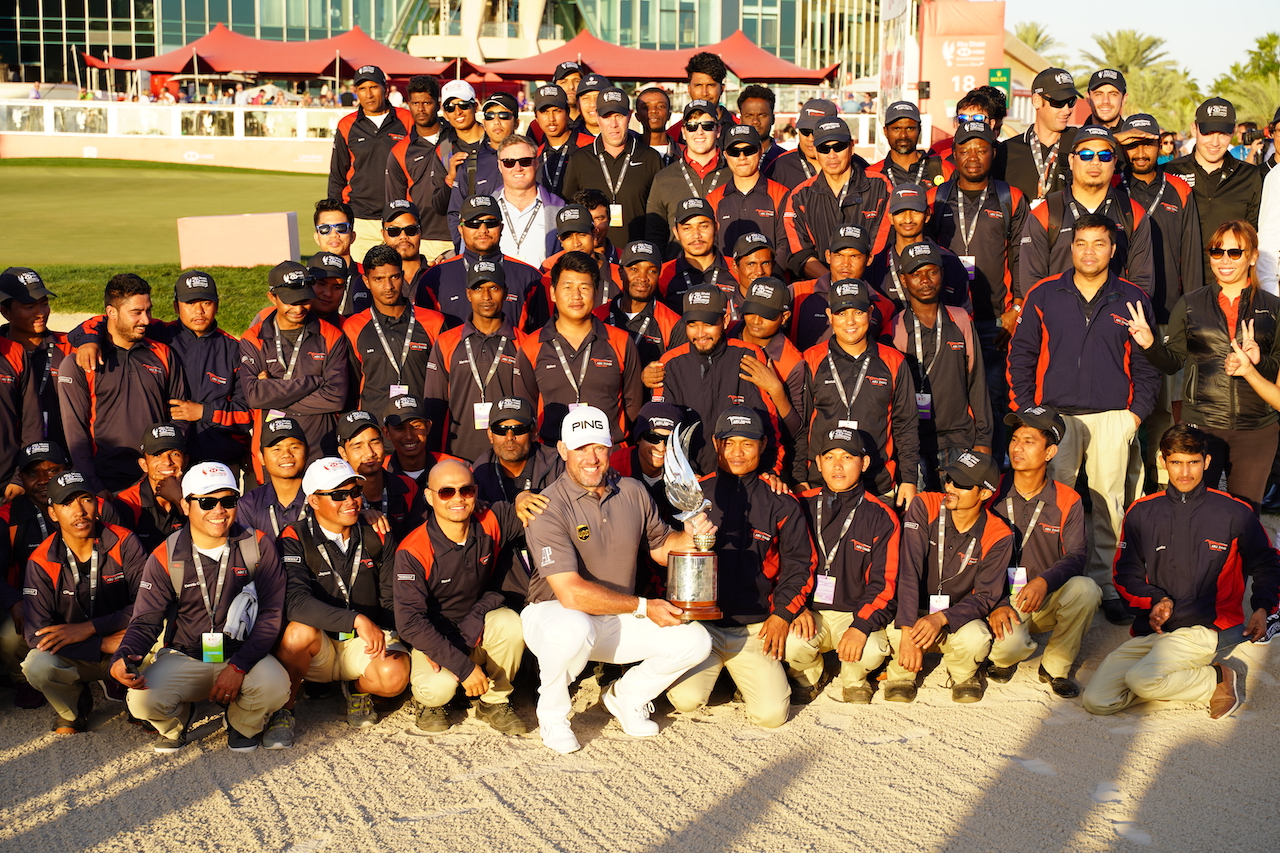Agronomy Teams Navigate Challenging Times Safely and Adopt New Procedures Ahead of Golfers Return to Courses Across Troon-Managed Venues

Created by leading designer Kyle Phillips, PGA National Czech Republic is a leader in environmentally sustainable golf design.
As the world comes together to tackle the ongoing spread of the Covid-19, Troon International agronomy teams have been working relentlessly, behind closed doors, to ensure that golf clubs are ready for when golfers returned.
The pandemic has been a test on many different levels for golf courses around the world and will continue to be, and agronomy teams have had to think on their feet, adapting to the current climate and changing future plans due to budget restrictions and limited staff availability.
In the Middle East, Abu Dhabi’s trio of golf clubs, Abu Dhabi Golf Club, Saadiyat Beach Golf Club and Yas Links Abu Dhabi, have had to adapt and change managerial components within a short timeframe; working to find a balance between what is needed and what is not, and the potential impact these changes will have. With a smaller number of associates on-site daily, management across the three golf clubs was challenging but doable with the various communication tools working, despite multiple changes having to be made on a daily basis.

The Abu Dhabi Golf Club Agronomy Team with Abu Dhabi HSBC Championship 2020 winner, Lee Westwood
Commenting on the effects that Covid-19 has had across the trio of clubs, Clinton Southorn, Cluster Director of Agronomy at Abu Dhabi Golf Club, Saadiyat Beach Golf Club and Yas links Abu Dhabi said, “It is incredible how quickly things can change and it is apparent that no one has all of the answers. During these unusual times, I have learnt that it is very important to have efficient and positive management programmes in place. Constant communication within the department and the entire facility has been key to ensuring the correct changes and measures have been made across all three Abu Dhabi Golf Clubs.”
Similarly, Karnataka Golf Association, Bangalore has had to adapt to the severe lockdown and quarantine practices in India. The golf club was fortunate enough to have ten associates living close by who were all able to obtain essential work passes. Split into two groups and working alternative days, the teams were able to work efficiently and effectively whilst adhering to government guidelines. Course closure and heavy rainfall has allowed the greens to flourish, meaning the main focus was on more detailed tasks such as brush cutting and bunker maintenance.
Jamie Faulkner Golf Course Superintendent, comments: “You can definitely do more with less if given the time, which is what we had. Even though we had to act fast on coming up with the right action plan, we were able to execute the plan effectively as we had time. Despite the reduction in team numbers, we were able to cover a surprising amount of work, and due to how well the team have looked after the course in this time, the committee has pushed to close the course every Monday for maintenance. This will now allow the course to have a resting period every week and enables us to complete more essential culture and maintenance practices.”
Moving across to Europe, The PGA National Czech Republic at The Oaks in Prague found the benefits of top-end software whilst working from home. With a limited team on the ground, those who were unable to be at the club were able to help with remote access by retrieving current golf course statuses via the software, including moisture levels, weather stations and irrigation system control.
Mark Chapleski, President of Troon International said, “It has been amazing to see how our agronomy teams around the world have adapted so quickly to these unprecedented times. Despite the challenges thrown their way they have worked tirelessly to ensure golf clubs exceed expectations when re-opened to members and visitors. Golf courses are a living, breathing thing, all requiring their own unique and individual care and attention to avoid deferred maintenance and longer-term issues.
“There have been a number of positive outcomes, including team relationships. The bonds between teams, not just in the agronomy teams but also within the entire facilities, have grown stronger, allowing teams to achieve shared goals and outcomes.
“We appreciate the hard work from all Troon associates, owners and members, without whose effort and understanding, we may have not been in the position we were when re-opening venues globally.”
Search
Other Course Highlights
- New state-of-the-art accommodation to improve overall experience for golfers at PGA NovaWorld Phan Thiet
- New Integrated Software installed at the PGA NovaWorld Phan Thiet in Vietnam
- Vietnam’s newest premier golf destination joins Asian Golf Industry Federation and International Association of Golf Tour Operators
- Sentosa’s Serapong Reaches New Heights in Golf Digest World’s 100 Greatest Golf Courses
- Greg Norman-Designed PGA NovaWorld Phan Thiet is Nominated for World’s Best New Golf Course’ at World Golf Awards
- PGA NovaWorld Phan Thiet Welcomes International Visitors as Vietnam Reopens Border
- KLGCC’s Sustainability Efforts Achieve International Recognition at Energy Management Leadership Awards 2021
- Troon Golf and Emaar Hospitality Group Mark 20TH Anniversary of Partnership with Celebratory Event
- KGA Welcomes New Golf Course Superintendent
- Yas Links Abu Dhabi Partners with Marriott Business Council to Raise Funds for Operation Smile UAE
- More news...